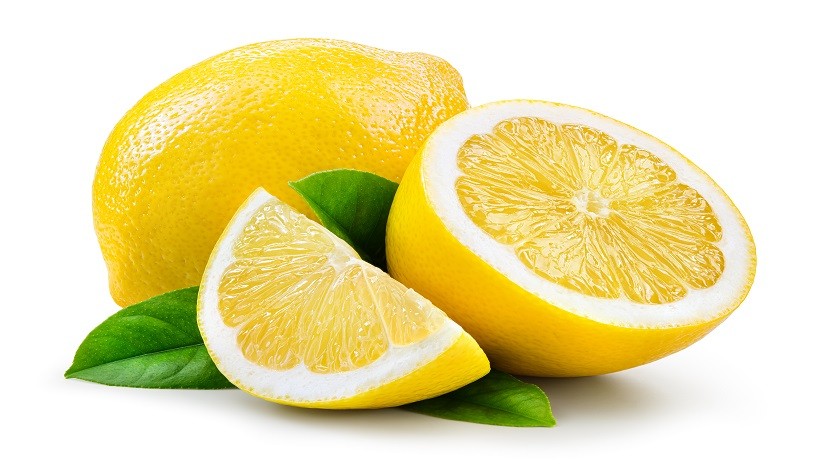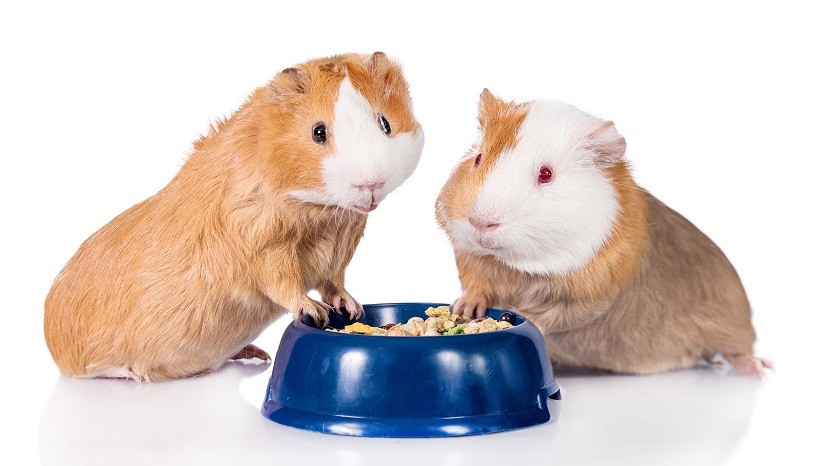Lemons are not a suitable choice for guinea pigs. They are highly acidic that’s why they seriously harm the tiny stomachs of your pocket pets. Interaction of guinea pigs with lemons can cause digestive issues, teeth sensitivity, mouth ulcers, and sores. Although lemons have an abundance of vitamin C, it’s still not healthy for guinea pigs. In addition, it contains phosphorus and calcium that is alarming for them as well. Let’s dig into more about lemons, it’s advantages, health hazards, nutritional value, and more. Hopefully, now you know “Can guinea pigs eat lemons?”
Nutritional Facts Of A Lemon

Lemons are acidic owing to their PH value that revolves around 2-3 in ratio. One can get the following minerals and vitamins in 100 g of lemon:
Vitamins
Minerals
We can conclude from this chart that besides having sufficient Vitamin C, the high sugars, calcium, and phosphorus content did not make it a fantastic option for guinea pigs.
Lemons Are Low In Fat
It is great that lemons are low in fat content. Fat makes blood vessels collapse and leads to obesity. When the fat content is less, like 0.3 g, the blood vessels remain unclogged.
Lemons Are Low In Calories
Lemons contain only 29 kcal calories, which is nothing. Therefore, we can call lemons a non-fattening fruit. If guinea pigs have some lemons they will not get fat.
Lemon Has Vitamin A
Vitamin A has great importance related to antioxidants because it helps to form soft body tissues.
Lemons Have vitamin B6
100 grams of lemon contains 6 percent of vitamin B6. Vitamin B6 performs numerous essential functions in the body. It is known as a stress reliever. It cleans the internal organs and gives relief from aches and pains too. Vitamin B6 also improves skin and hair health.
Lemons Have Vitamin C
Lemons are a bomb for vitamin C intake with almost 60 percent of it. Vitamin C jobs are to maintain overall health and prevent scurvy.
Lemon Is A Source Of Fiber
Lemons contain fibers that enhance bowel movements and improve the digestive system.
Lemons Are Not A Healthy Choice For Guinea Pigs
The lemons are densely packed with beneficial nutrients, but still, guinea pigs cannot eat them. There are serious lemon-related health issues for guinea pigs. A few of them are mentioned below.
Fibers, Sugars, And Digestive System Risks
Guinea pig’s digestive system is not as developed to bear fiber and sugars. When they encounter unnecessary sugars and fibers, the digestive system is unable to break out these compounds. Lemon is composed of such sugars and fiber, which leads to loose stools, feeling bloated, stomach discomfort, growth of bacteria in the stomach, and more.
Calcium-Phosphorus And Urinary Tract Problems
The presence of phosphorus and calcium traces develops urinary tract problems in guinea pigs. Excessive calcium, when stored in the body, causes kidney stones and bladder stones. The pain of kidney and bladder stones is unbearable, and if not treated on time, can lead to death. On top of that, the calcium-phosphorus ratio can foster urinary infections. Due to this, the urinary tract unexpectedly develops issues like blood in the urine.
Can Guinea Pigs Have Lemon Juice?
No, lemon juice is just like poison to a guinea pig’s stomach. Lemon juice is too acidic that will disturb the performance of the digestive system. This will result in tummy trouble. Lemon squash is as harmful as the lemon juice itself. It contains ample sugars so it matters if you add water to make it dilute. It will still not be recommended for guinea pigs. Guinea pigs can only drink water instead of juices or squash.
How Much Lemon For The Guinea Pig?

Lemon being too acidic, is not preferred for guinea pigs. If you put a lemon in front of them, they will not like to eat it at all. However, if you wanted to give it a try, cut a thin portion and give it to the piggies. Guinea pigs can eat lemon fruit twice or thrice a year.
Like the whole lemon, lemon peels could be served in a tiny bit quantity. Although lemon peels have a saturation of Vitamin C, it is still not acceptable.
Can Guinea Pigs Eat Green Lemons?
Not at all, you cannot think of feeding green lemons to guinea pigs. Whether green or yellow lemons, they are the same. The difference is between their PH level and color. Green lemons have a high PH value of 2. Green lemons are far more dangerous when compared with yellow lemons. With the PH 2, acidity in lemons turned high.
Can Guinea Pigs Eat Yellow Lemons?
Yes, they can have yellow lemons in very strict proportions yearly. When the green ones lay aside for a few days they automatically started turning into yellow lemons. When a lemon changes its color, PH also starts changing. In yellow-colored lemons, the PH number counts for 3. No matter, the PH level is 2 or 3, it will always be harmful to the guinea pigs’ health.
Conclusion
Lemons either yellow or green are not meant for guinea pigs. They are unfitted to have lemon as in daily or weekly treats. Their delicate digestive system can handle too much acidic fruit. Lemon intake in guinea pigs causes underlying issues like mouth sores, teeth grinding, and more. Lemons are rich in vitamin C, but you can find other alternatives to fill the gap.
If you want to learn more about pets visit us at petshoods
{ "@context": "https://schema.org", "@type": "Article", "mainEntityOfPage": { "@type": "WebPage", "@id": "https://petshoods.com/can-guinea-pigs-eat-lemons/" }, "headline": "Can Guinea Pigs Eat Lemons? | Benefits, Risks, And Serving Size", "description": "Yes, They Can Eat Lemons In Very Strict Moderation. Yellow Lemons And Green Lemons Are Not Safe, Highly Acidic Treats For Guinea Pigs. Lemons, Peels And Juice Are Also A Bad Choice.", "image": "https://petshoods.com/wp-content/uploads/2021/08/Can-Guinea-Pigs-Eat-Lemons-768x436.jpg", "author": { "@type": "Person", "name": "Jeremy" }, "publisher": { "@type": "Organization", "name": "Petshoods", "logo": { "@type": "ImageObject", "url": "https://petshoods.com/wp-content/uploads/2019/02/13925402_1502331219793083_1620090286454245017_n.jpg" } }, "datePublished": "2021-09-02", "dateModified": "2021-09-18" }